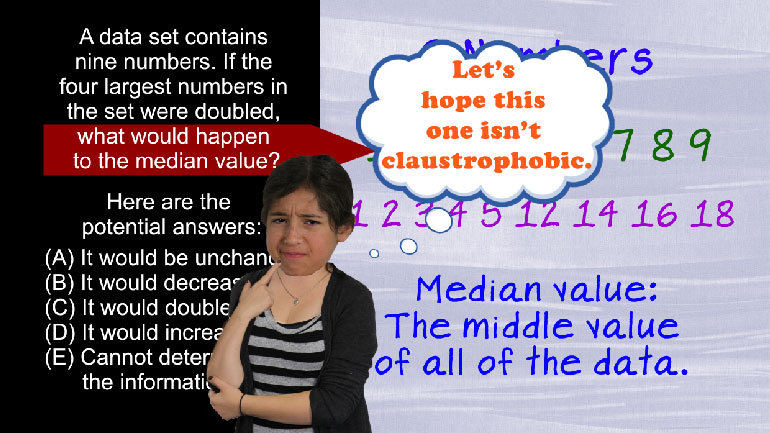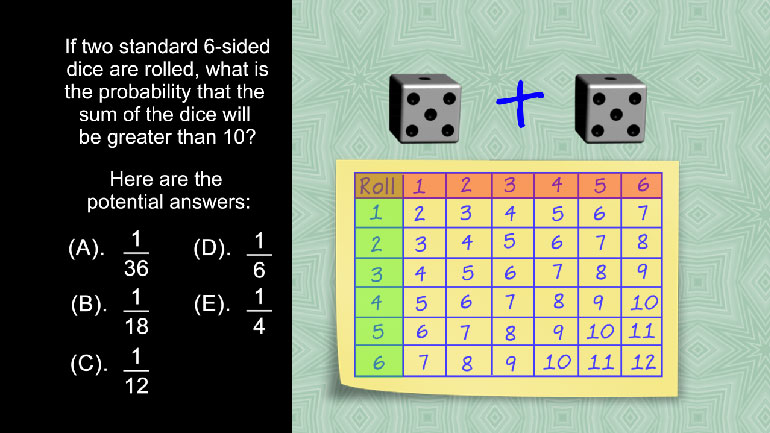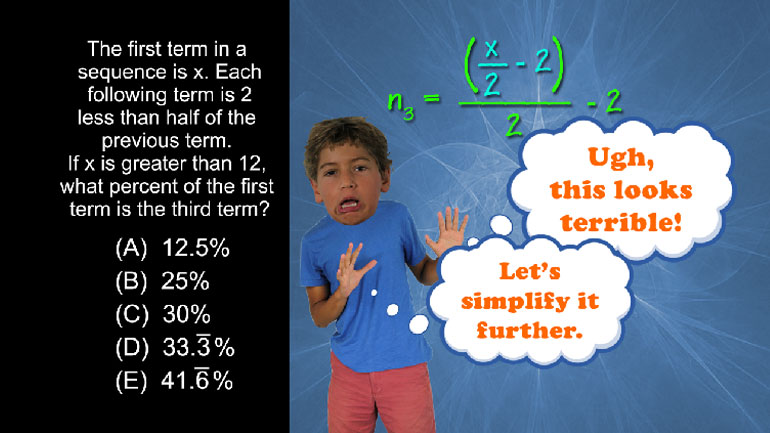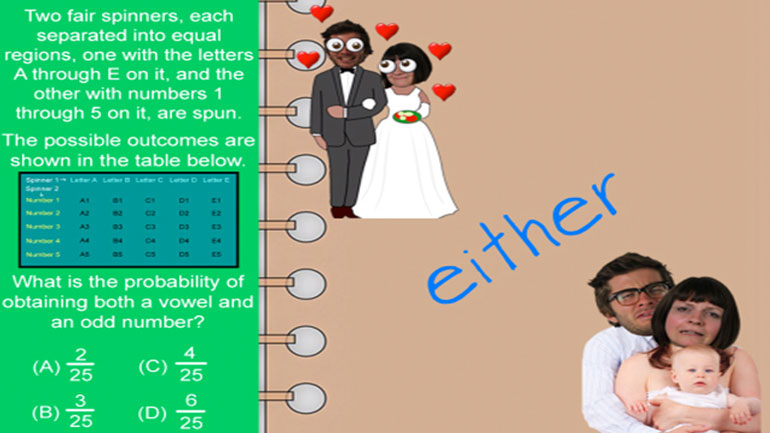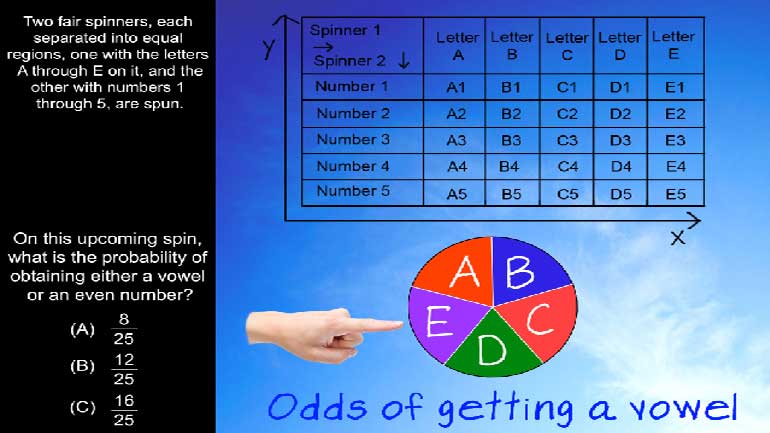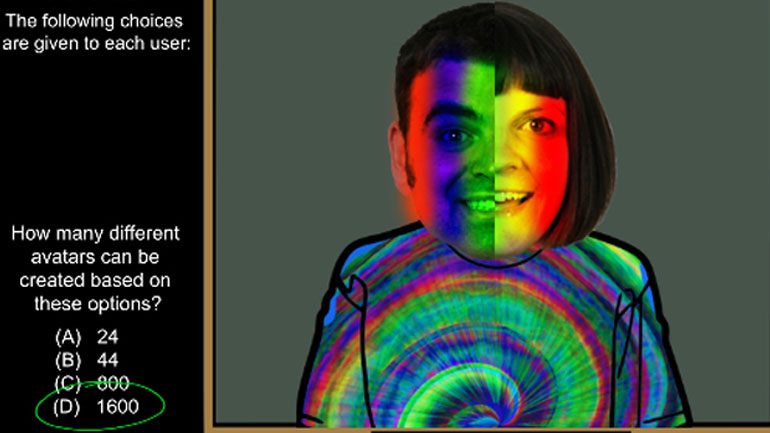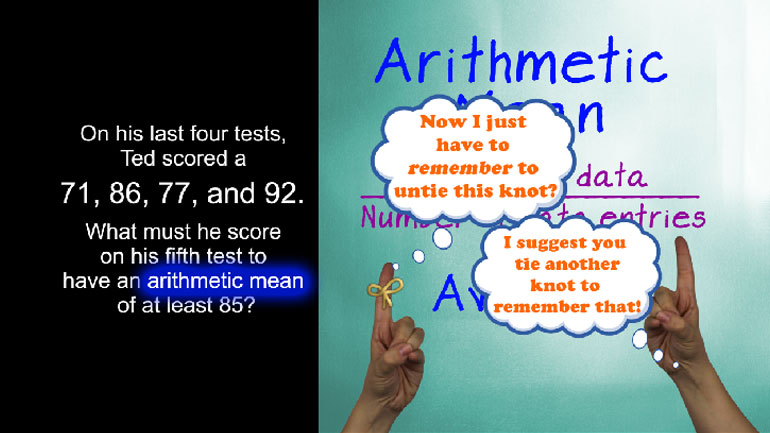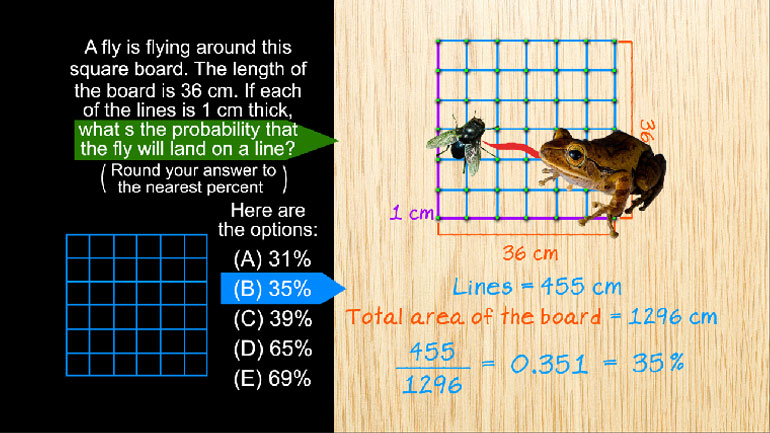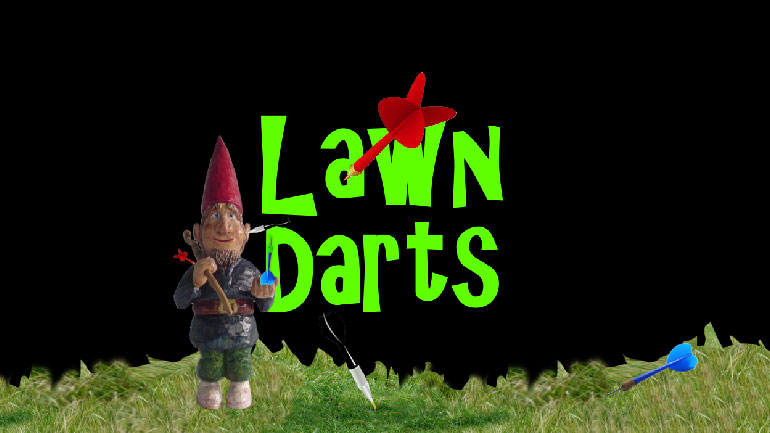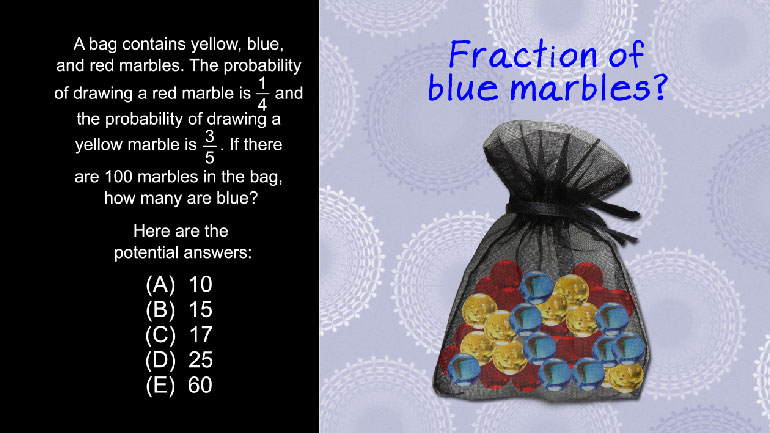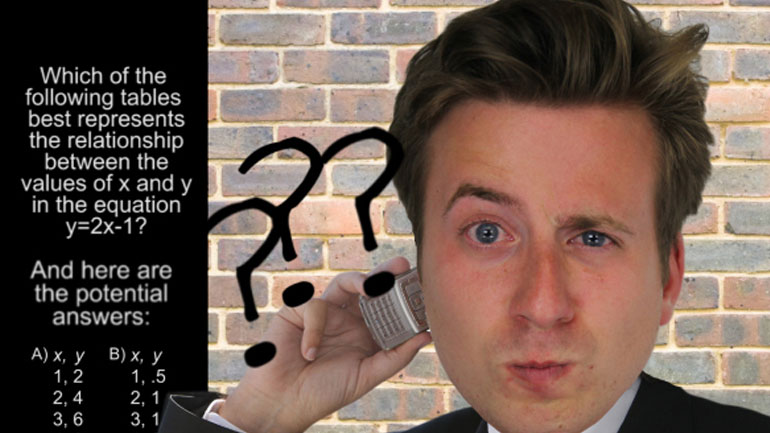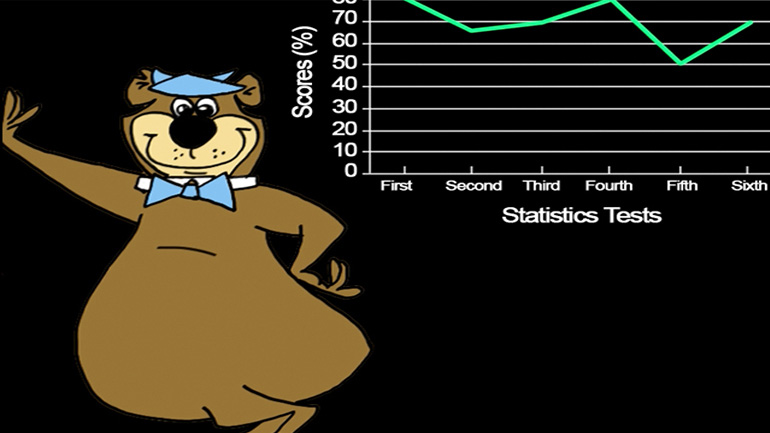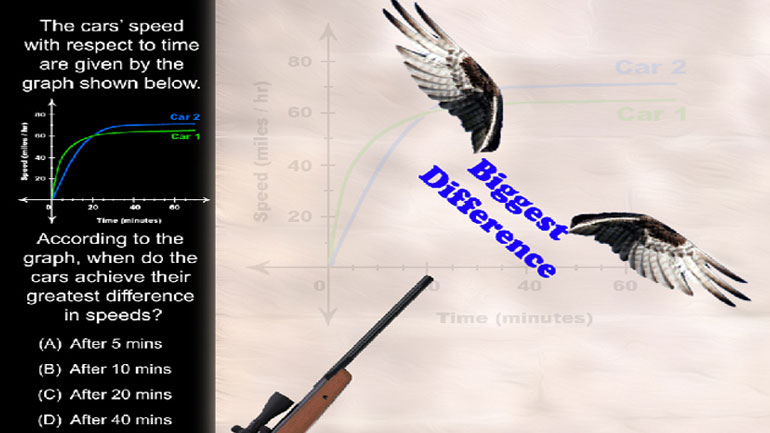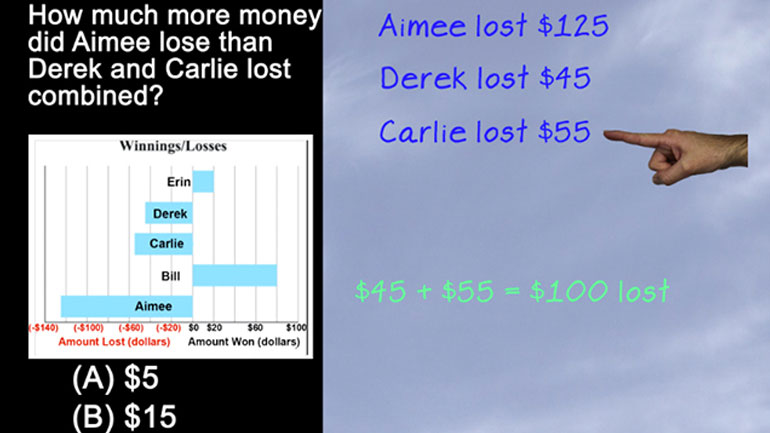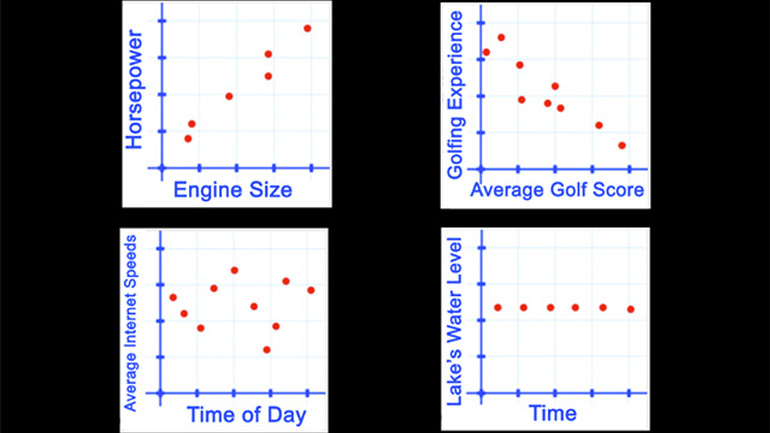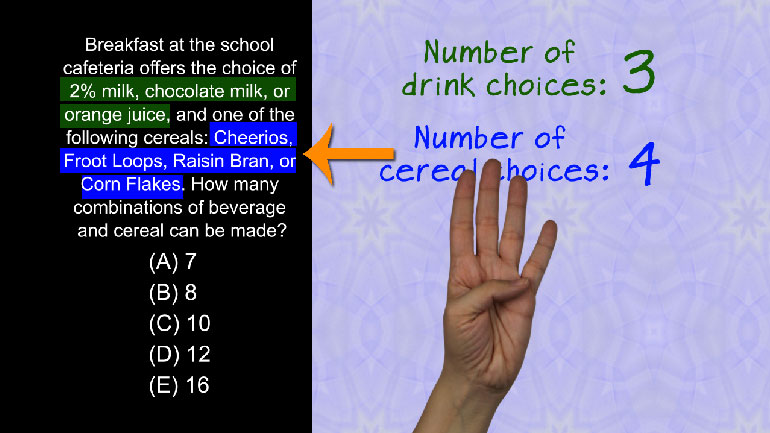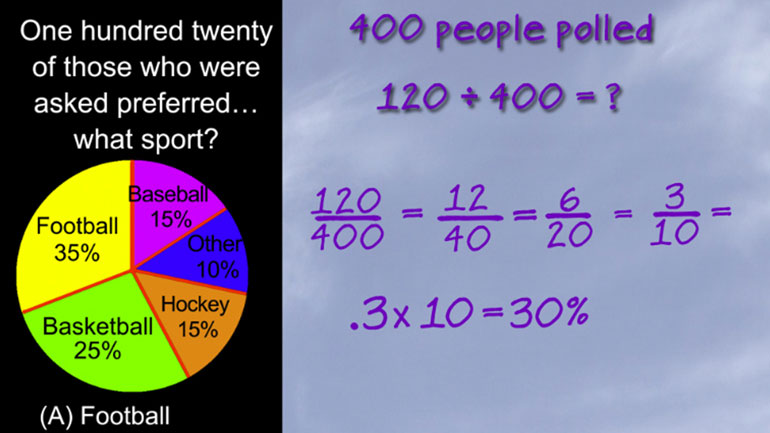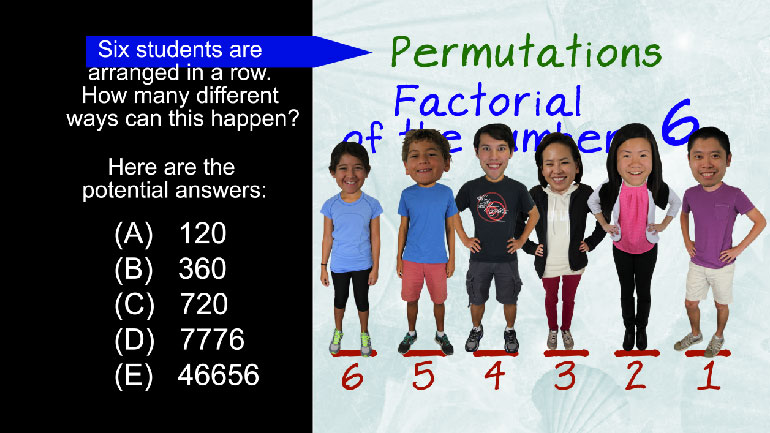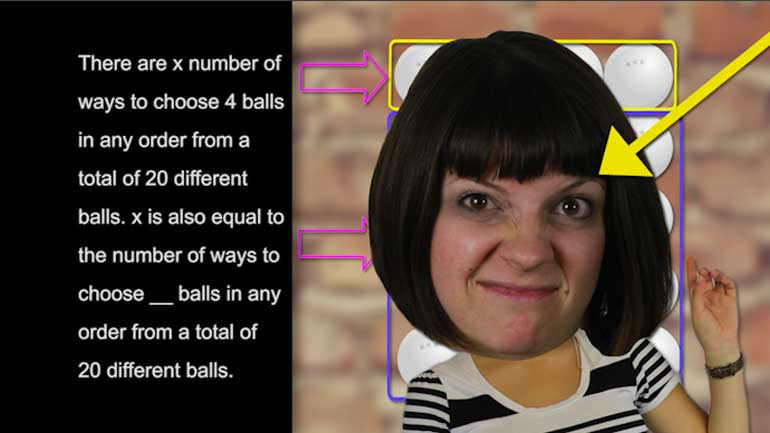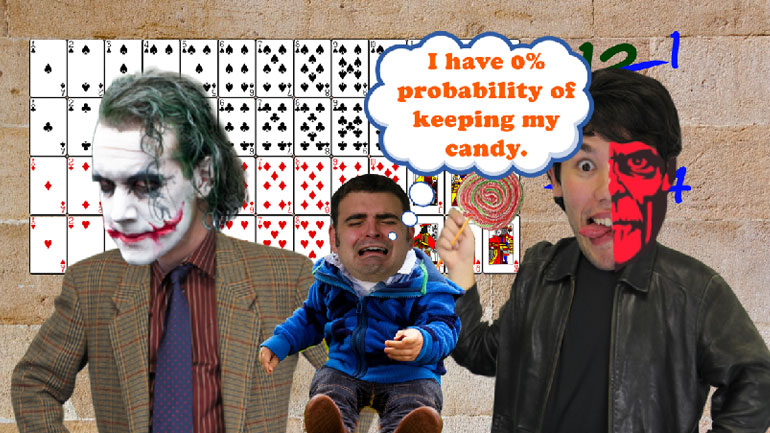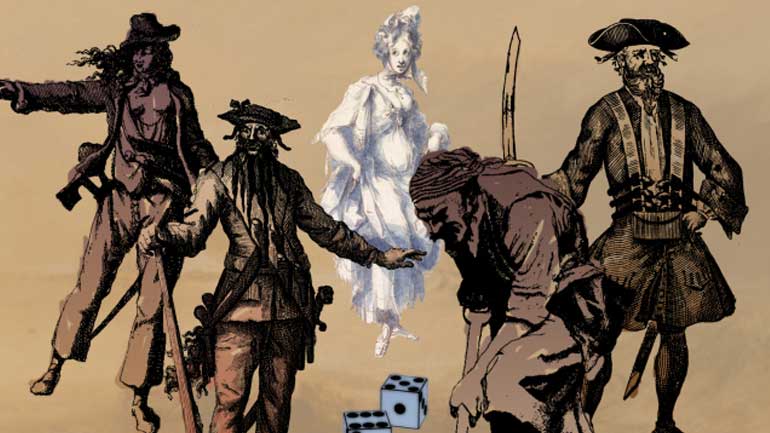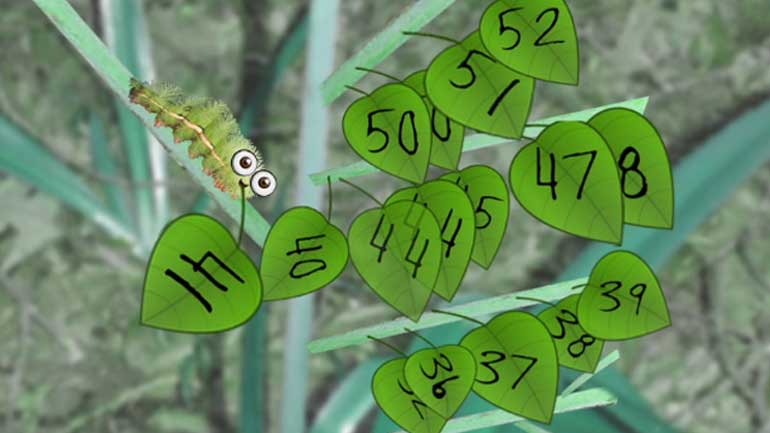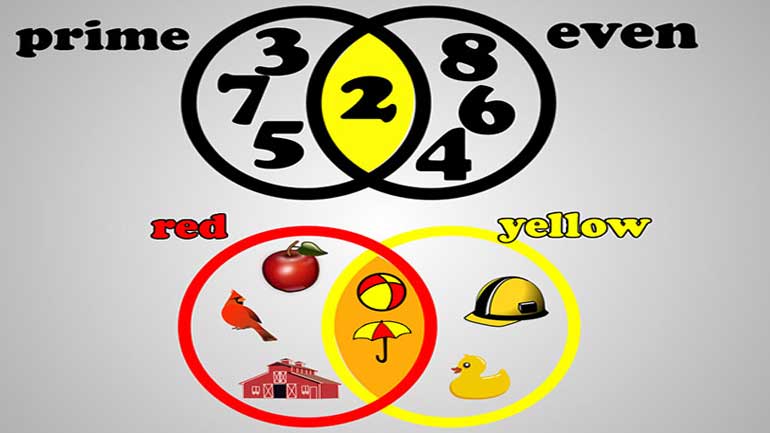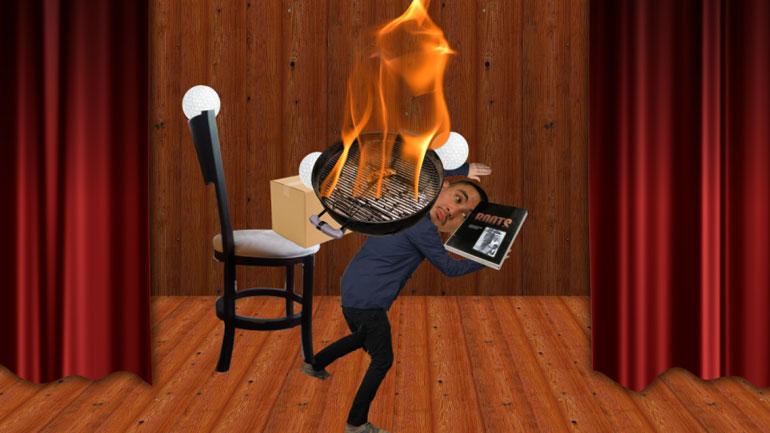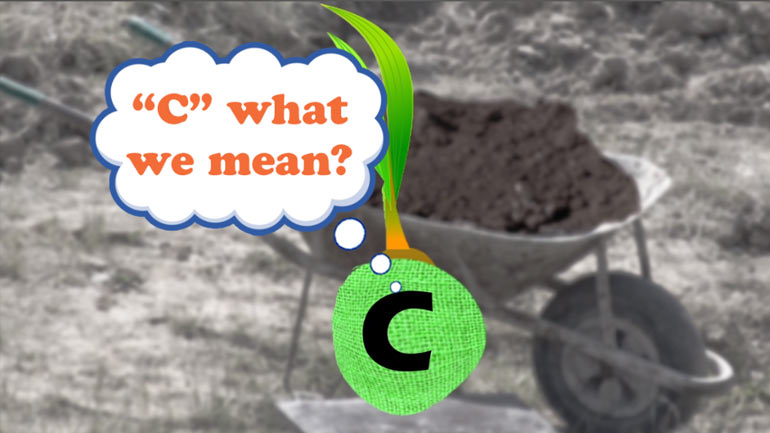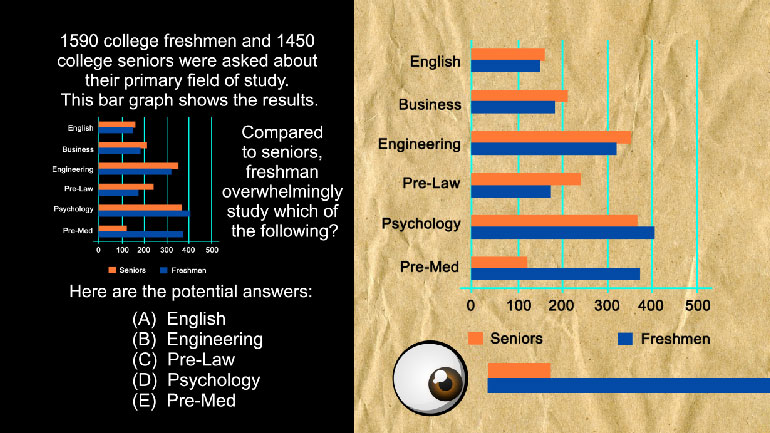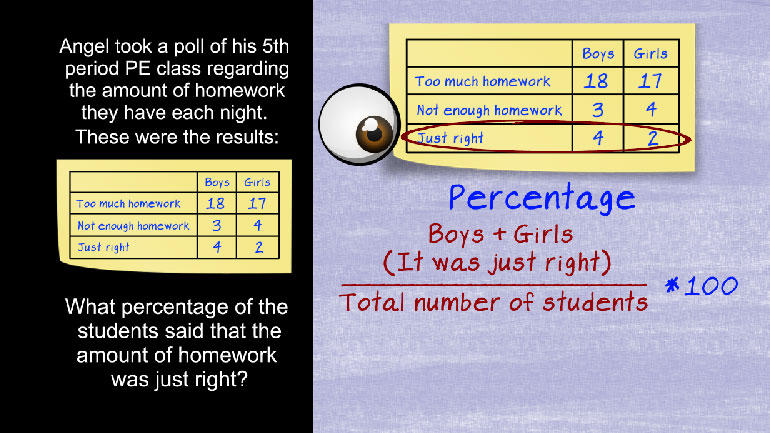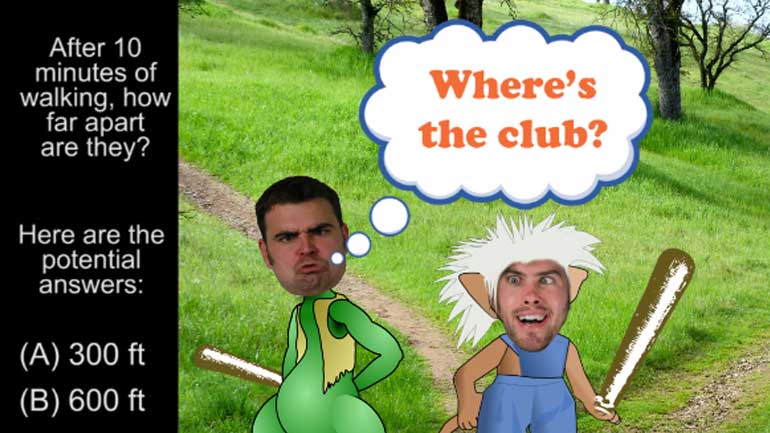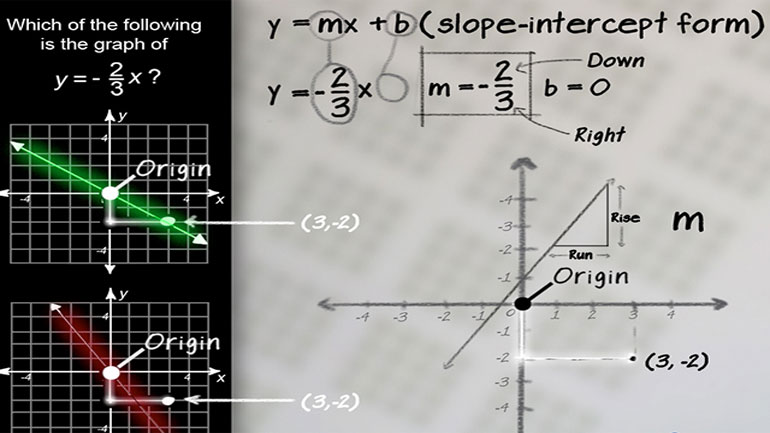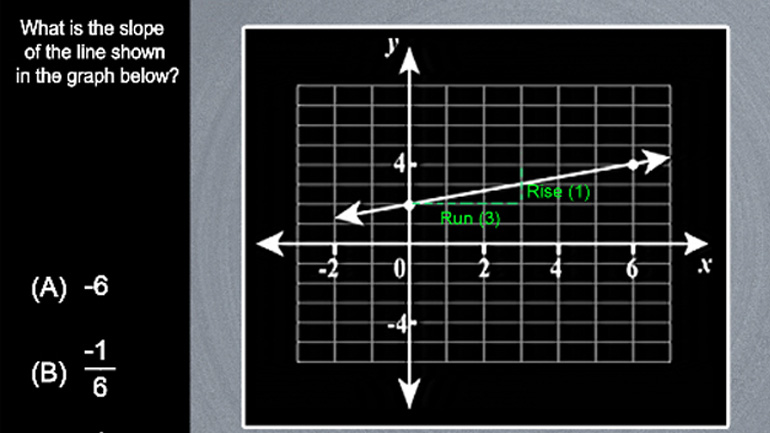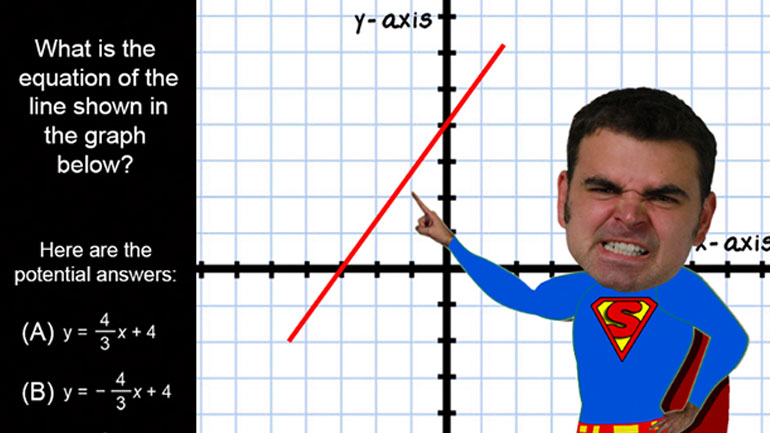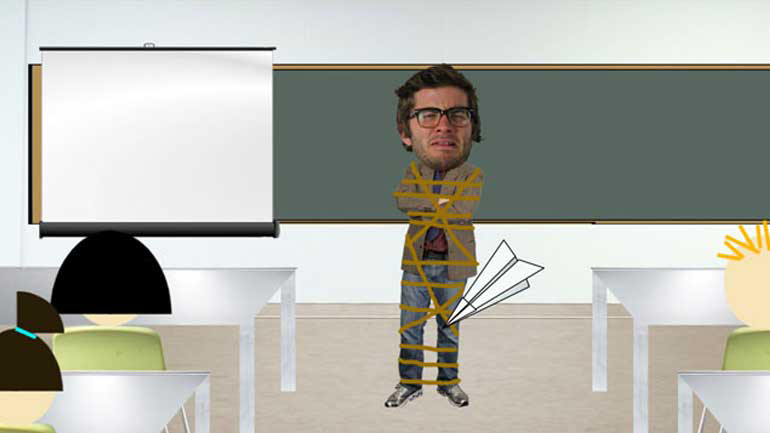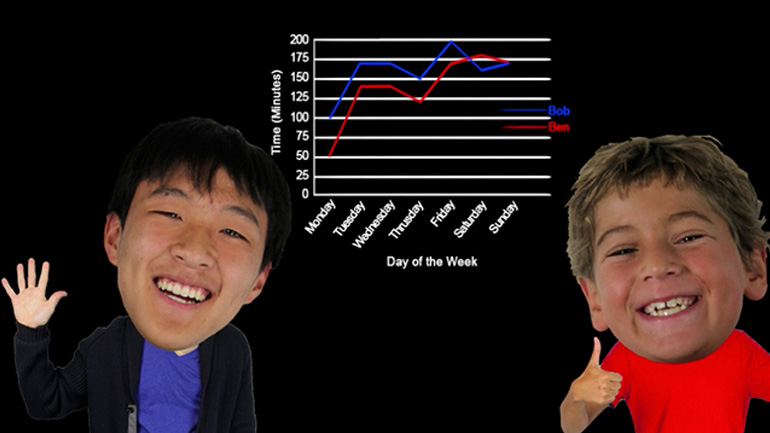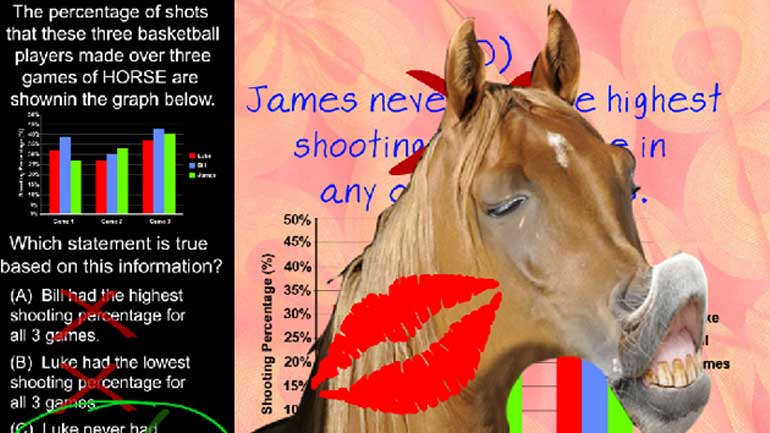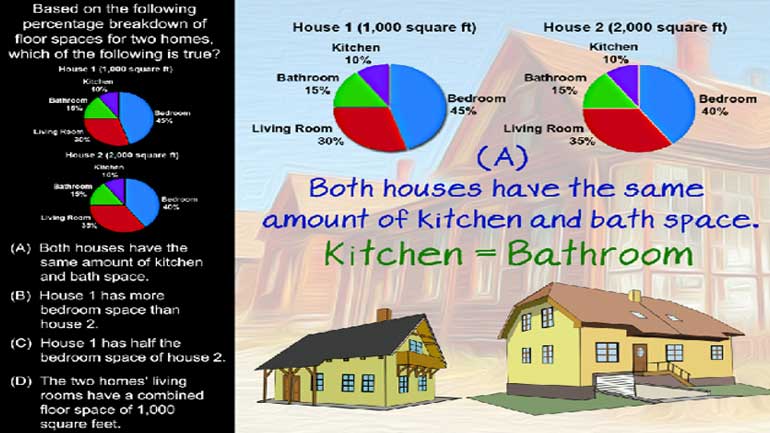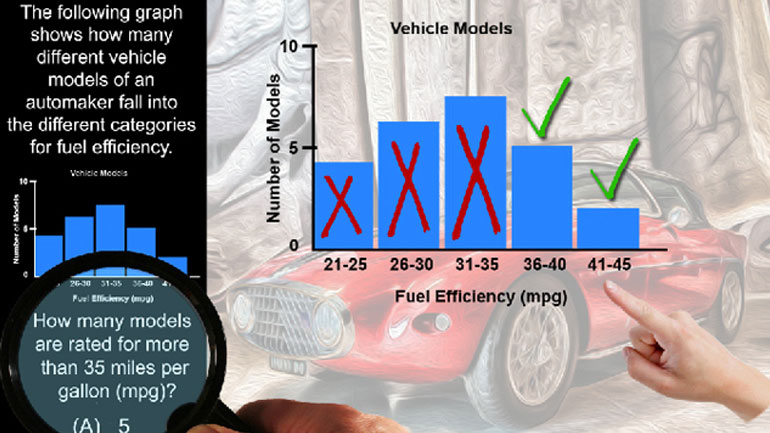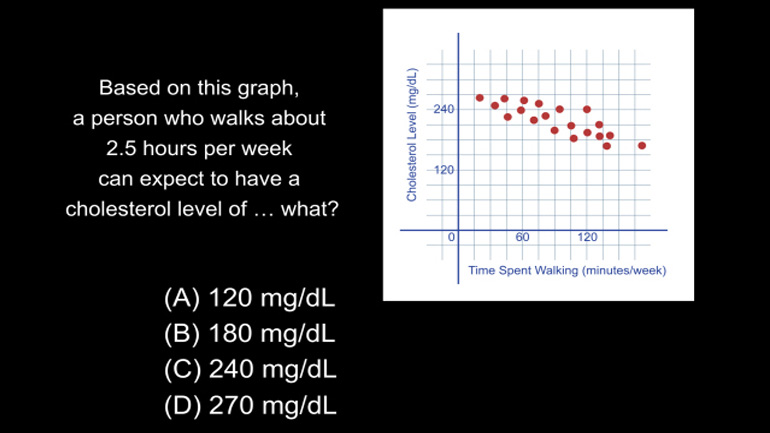ShmoopTube
Where Monty Python meets your 10th grade teacher.
Search Thousands of Shmoop Videos
Statistics and Probability Videos 134 videos
SAT Math: Statistics and Probability Drill 1, Problem 2. If the four largest numbers in the set were doubled, what would happen to the median...
SAT Math 1.4 Statistics and Probability. If two standard 6-sided dice are rolled, what is the probability that the sum of the dice will be gre...
SAT Math 1.5 Statistics and Probability. If Silas draws one card, then places it in his pocket and draws another, what is the probability that...
CAHSEE Math 3.1 Statistics, Data, and Probability I 213 Views
Share It!
Description:
Statistics, Data, and Probability I: Drill Set 3, Problem 1. Which of the following statements is true?
Transcript
- 00:03
Here's another unshmoopy question for ya...
- 00:05
The graph below shows the results of the mayoral race for the town of Shmoopville.
- 00:11
Which of the following statements is true?
- 00:14
Here are the possible answers:
- 00:21
So... this is another "can you read a graph?" question.
Full Transcript
- 00:24
The question is asking us to compare the various answers as relative fractions or multiples
- 00:28
of each other. No short cuts here.
- 00:30
We have to actually identify a number with
- 00:32
each candidate -- that is, how many votes did each one get?
- 00:36
...and then just go one by one through the potential answers and ask... deal? Or no deal?
- 00:42
So let's start with candidate 1.
- 00:43
If we carefully note where the bar is, it stops at 13,000. Jot it down.
- 00:48
And while we're here, let's note the totals for the other candidates...
- 00:51
Candidate 2 got 26,000 votes,
- 00:53
Candidate 3 got 16,000,
- 00:55
and Candidate 4 got 29,000. And remember, this is in thousands of votes...
- 01:00
not millions, not tens, not dollars raised for their campaign, not number of political
- 01:04
favors... We are going to get a ton of curve balls thrown
- 01:07
at us, so we always need to make sure we're aware of exactly what these numbers represent.
- 01:12
Okay, now we just go back to potential answer A
- 01:14
and it says that candidate 4, with 29,000 votes...
- 01:17
...received twice as many as candidate 1,
- 01:20
who won 13,000 votes. Two times 13 is 26, not 29... so A is a big fat no... or false.
- 01:28
Potential answer B: candidate 2, at 26,000 votes, had 50% more votes than candidate
- 01:33
3, who had 16,000 votes. Well, 50% of 16 is the same as half of 16
- 01:39
which is 8... the questions asks for 50% MORE votes, so we'd add the 8 to the 16 and get
- 01:45
24 thousand votes. 24 does not equal 26 so B is also a big fat no.
- 01:52
Moving on.
- 01:53
Potential answer C: candidate 4 with 29,000 votes
- 01:56
won the election with about 35% of the total votes.
- 01:59
OK, a bit tricky here.
- 02:01
It's a two-parter. First, did candidate 4 win?
- 02:04
Well, yes she did -- the graph tells us that much. But we also have to figure out if she won
- 02:09
with about 35% of the TOTAL votes -- so we have to add up ALL the votes first...
- 02:14
If we add the votes for the 4 candidates, we see that the total votes in the election
- 02:19
were 13 plus 26 plus 16 plus 29... or 84,000 votes.
- 02:25
Is 29,000 about 35% of 84,000? It most certainly is!
- 02:30
So C is a definite yes here. And just to be sure D is wrong and we didn't
- 02:34
miss something, it's a good idea to do check that one, too
- 02:38
D is roughly the same as C, only it asks -- did Candidate 4 win with 50% of the votes?
- 02:43
Well, 50% of the votes of the total of 84,000 would be 42,000...
- 02:48
...so unless there were some Russian election "ballot helpers" there, candidate 4 only
- 02:53
had 29,000 votes, and was closer to that 35% figure.
- 02:57
As always, remember that the exam is asking us for the BEST answer, not always the perfect one.
Related Videos
CAHSEE Math: Algebra and Functions Drill 5, Problem 3. Solve the equation.
Statistics, Data, and Probability I: Drill Set 3, Problem 4. How many different avatars can be created based on the given options?
Statistics, Data, and Probability II Drill 3 Problem 2. Which two sports together make up for the preferences of more than half of all those w...
Statistics, Data, and Probability II Drill 3 Problem 3. One hundred twenty of those who were asked preferred what sport?
